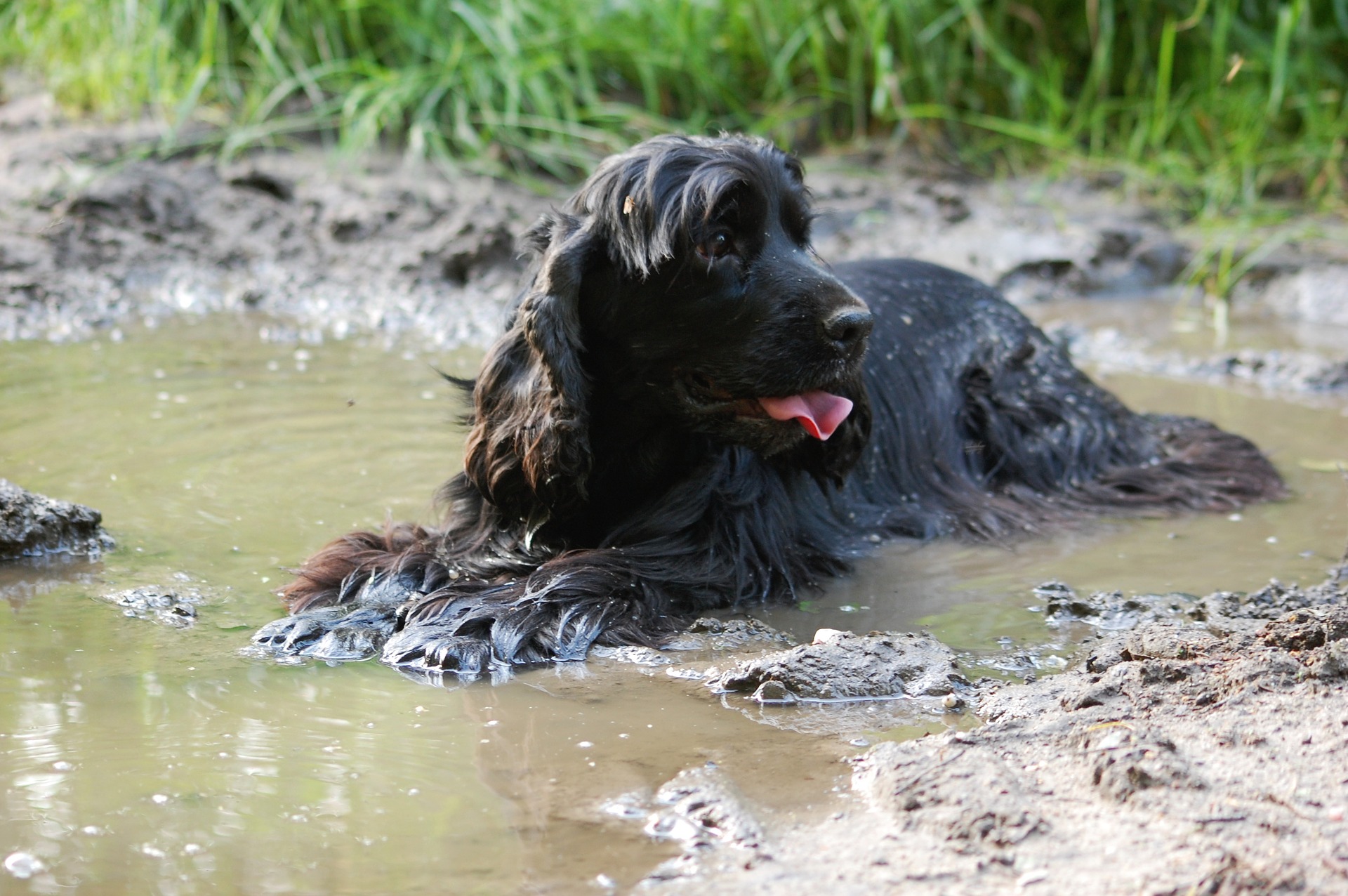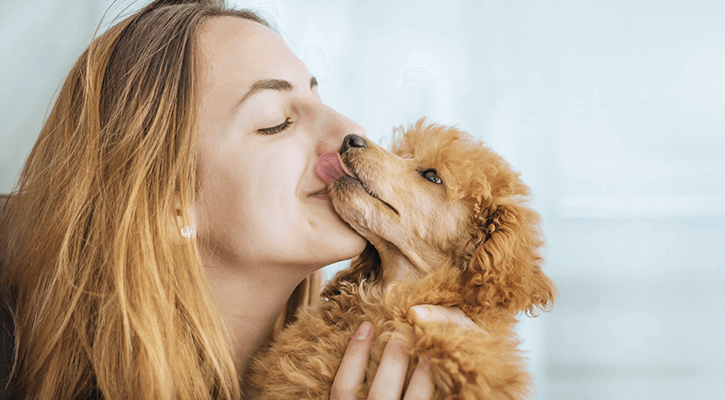Dog Wellness Exams

Because our veterinarians believe strongly in prevention and early disease detection, we recommend twice yearly exams for all pets in. In addition to these vaccines, our veterinary team recommends including regular blood work to identify diseases. We also recommend checking your pet’s stool twice yearly to identify intestinal parasites which can affect both their health and the health of your family.
Jump to:
What to Expect During Your Pet’s Wellness Exams
At your pet’s bi-annual pet wellness exams, our veterinarians will do a thorough physical exam, dental exam, discuss your pet’s lifestyle, answer any questions you may have about your pet’s physical well being, behavior, and nutrition. They will make recommendations for parasite prevention and specific diagnostics or treatment based on your pet’s needs.
Our veterinarians will decide with you which vaccines your pet needs based on their lifestyle. We recommend all dogs receive the DHPP vaccine to prevent distemper virus, hepatitis, parvo virus, and parainfluenza, in addition to rabies. Our veterinary hospital offers 3 year vaccination options for both of these vaccines for pets who qualify. Additionally, we carry the leptospirosis vaccine, the Bordetella vaccine, the Lyme disease vaccine, and the canine influenza (H3N2/N8) vaccine. Puppies begin their vaccine series between 6 and 8 weeks of age.
Canine Vaccinations:
- Rabies: 1YR , DHPP 1YR , Lepto, Lyme
- Bivalent Influenza (2 shot series)
- Bordetella (Kennel Cough)
Haines Road Animal Hospital is proud to be a premier animal wellness clinic. Give us a call at (727) 351-8478 today!
A Full Exam is recommended every 6 months (after all that’s 3.5 human years). We also recommend routine bloodwork (internal exam), a fecal (internal parasite check), Heart Worm Test, Oral Exam, Proheart Injection (canines only), or some type of heartworm preventative & Flea and tick preventative. Our senior patients are always offered Blood Pressure checks & ECG’s as well!
Puppy Vaccinations

Puppy Vaccination Schedule that Our Saint Petersburg Veterinarians Recommend at Haines Road Animal Hospital
Puppy vaccines should start ideally at 6 to 8 weeks of age.
1st Puppy Visit – 6 to 8 weeks of age
- DHPP temp vaccine
- Fecal exam(ask O to bring in a sample)
- Deworm (Strongid)
- Office Exam
- Puppy kit (heartworm and flea/tick)
*** If fecal is negative on first visit, no more fecals are necessary, just deworming***
2nd Puppy Visit – 9 to 11 weeks of age
- DHPP temp
- Fecal Exam (only if first fecal was positive)
- Deworm(Strongid)
- Office Exam
- 2nd dose of heartworm prevention and flea prevention
3rd Puppy Visit – 12 to 14 weeks of age
- DHLPP temp (lepto begins)
- Deworm(Strongid)
- Office Exam
- Fecal exam (only if second fecal is positive)
- 3rd dose of heartworm prevention and flea prevention
4th Puppy Visit – 15 to 17 weeks of age
- DHLPP Annual
- Rabies 1 year
- Fecal Exam(only if third fecal is positive)
- Deworm(Strongid)
- Office Exam
- 1 yr supply heartworm prevention and flea prevention
Haines Road Animal Hospital today at (727) 351-8478 to schedule your puppy’s vaccines no matter where he or she is on the vaccination series.
Senior Dog Wellness

It can be hard to admit when we see the signs of old age in our animal companions, but the fact is that most dogs are considered seniors when they hit seven, cats around nine. Pets age much more rapidly than humans, which means diseases and illness progress quicker as well.
To ensure that your pet has the longest, healthiest, most comfortable life possible, Haines Road Animal Hospital encourages you to bring your senior pet for exams and blood tests twice each year. This way, we can track how your pet is aging, and we’ll be more likely to catch any developing diseases before they’re big problems.
Blood tests are one of the most important parts of a senior exam. These blood screenings—often referred to as a “senior panel”— monitor red and white blood cell counts and reveal how well the kidney, liver, pancreas, and thyroid are functioning. Your vet may recommend a chest x-ray to ensure that the heart is a normal size and that there are no masses in the lungs.
Periodontal disease is always a threat to our pets’ health and comfort, and it’s particularly tough on older pets. That’s why a dental exam is always part of any senior pet screening as well.
Finally, make sure to let your vet know about any behavior changes in your pet. Once dogs and cat get to the geriatric stage, monitoring for signs of cognitive dysfunction—such as losing housebreaking, getting lost or wandering aimlessly—is very important.
Dog Wellness Q & A
How often would I bring my dog in for a wellness check?
Since our pups age significantly faster than humans do, we want to be able to keep a close watch over their health and changing needs. Therefore, a wellness examination every 6 months is recommended.
What will my veterinarian look for during a physical exam?
A thorough evaluation from nose to tail is performed to detect any changes or concerns. Our veterinarians will look at your dog’s mouth to identify the level of dental tartar and any areas of gingivitis, growths, or chipped teeth. Eyes are examined for any age-related changes with the lenses, eyelid growths, and general appearance. Ears are assessed for signs of infection. The doctor will listen to your pet’s heart and lungs for any heart murmurs, abnormal rhythms, or wheezing. Palpation of the belly assesses for general comfort, and presence or enlargement of specific organs. Skin is evaluated for rashes, bumps, skin tags, and fleas/flea dirt. Your dog’s gait is evaluated for lameness, pain, or stiffness. A body condition assessment will determine your pet’s ideal weight and any recommendations for diet adjustments or changes with activity can be made.
Is there any additional testing needed beyond a wellness exam? Annual blood testing for heartworm and tick diseases as well as annual fecal testing for intestinal parasites is standard. A wellness blood panel is highly recommended annually to evaluate organ function and monitor any trends or changes. This allows us to personalize care more thoroughly for your pet to keep them happy and healthy for years to come.
Schedule A Wellness Exam For Your Dog In St. Petersburg, FL
At Haines Road Animal Hospital, our veterinary staff is here to ensure that your cat is able to enjoy a long and healthy life as your companion. Call us today to make a dog wellness exam with one of our veterinarians. You can reach us now at: (727) 351-8478
Explore Our Complete List of Veterinary Services in Saint Petersburg, Florida
- Diagnostics
- Heartworm Prevention
- Preventive Care
- Pet Pregnancy Planning
- Laser Therapy
- Pet Behavior
- Puppy Care
- Cat Wellness Exams
- Pet Nutrition
- Emergency
- Dermatology
- Anesthesia & Patient Monitoring
- Kitten Care
- Spay & Neuter
- Vaccinations
- Wellness Exams
- Dental Care
- Surgery
- In-House Laboratory
- Senior Wellness
- Microchipping
